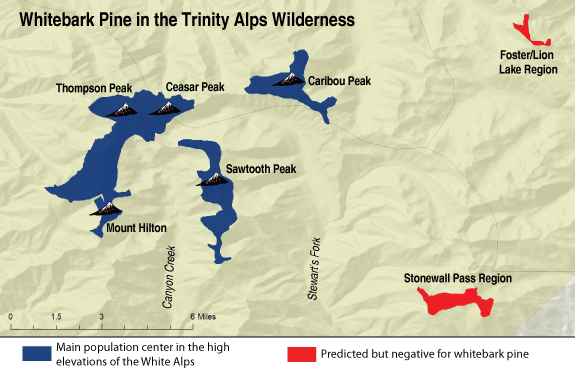Original Publication DATE: 1/2/2014
Part of last summer’s whitebark pine conservation assessment and mapping project involved predicting location where the species might occur but had not yet been documented. While I found success with some predictions, others turned into negative reports with “ground-truthing.” One of these areas was in the Trinity Alps Wilderness around Stonewall Pass where I predicted WBP would occur because there is significant landmass above 7,500′.
The geology of the Stonewall Pass region is built from a majority of mafic and ultramafic rocks. Granite and Gibson peaks are themselves granite, but the remainder of the landscape is composed of serpentine, which makes survival difficult for many species. Interestingly, whitebark pine are found on the serpentine of the Scott-Trinity Mountains around China Peak and Mount Eddy, but it turns out they are absent from the Stonewall Pass serpentines. Whitebark’s absence on the granite of Gibson and Granite peak is most likely due to the size of the inhabitable area offered by the small granite plutons here as well as the increased competition from granite-loving species like mountain hemlock and Shasta fir.





One Reply to “Stonewall Pass – the Red Alps”
Comments are closed.